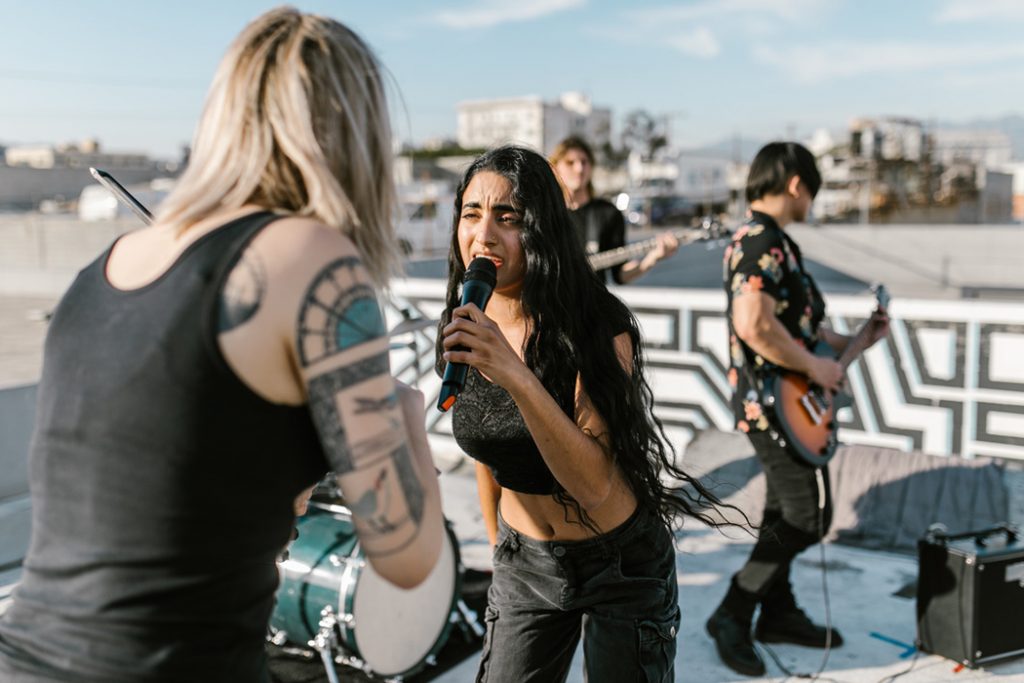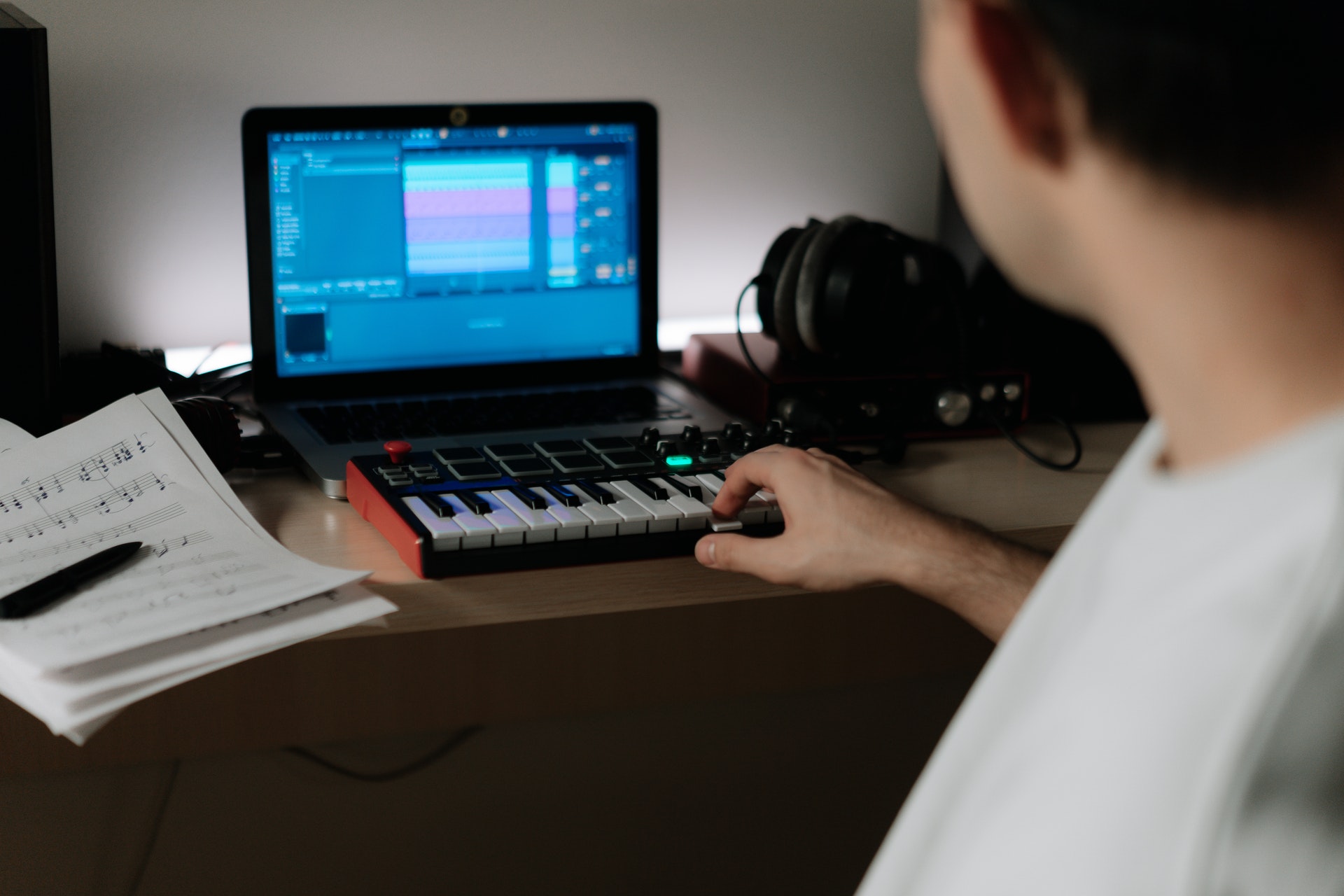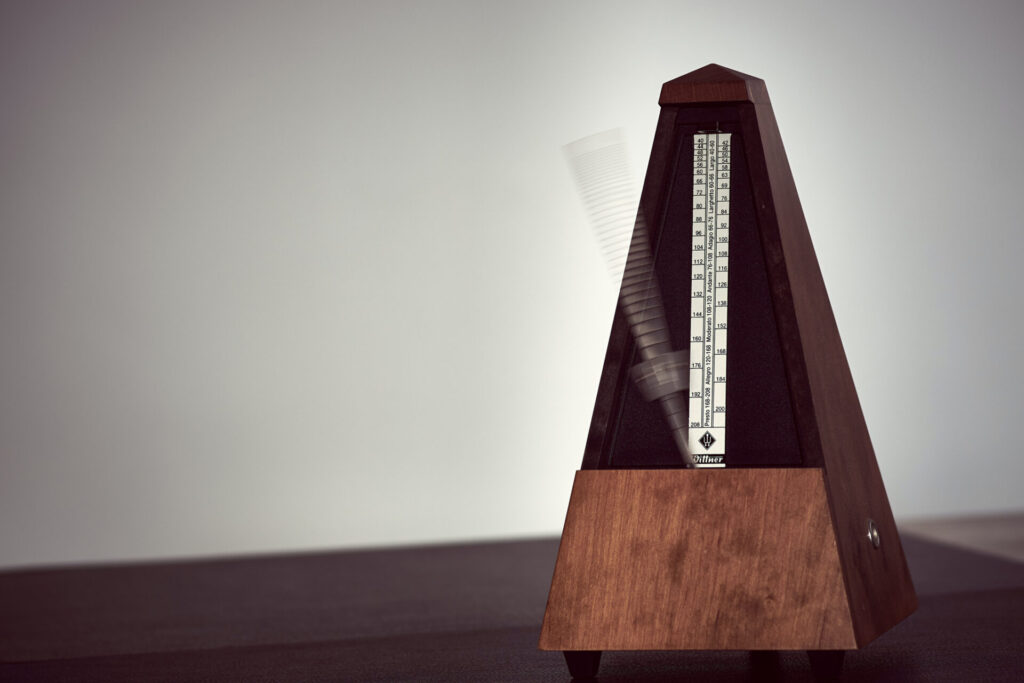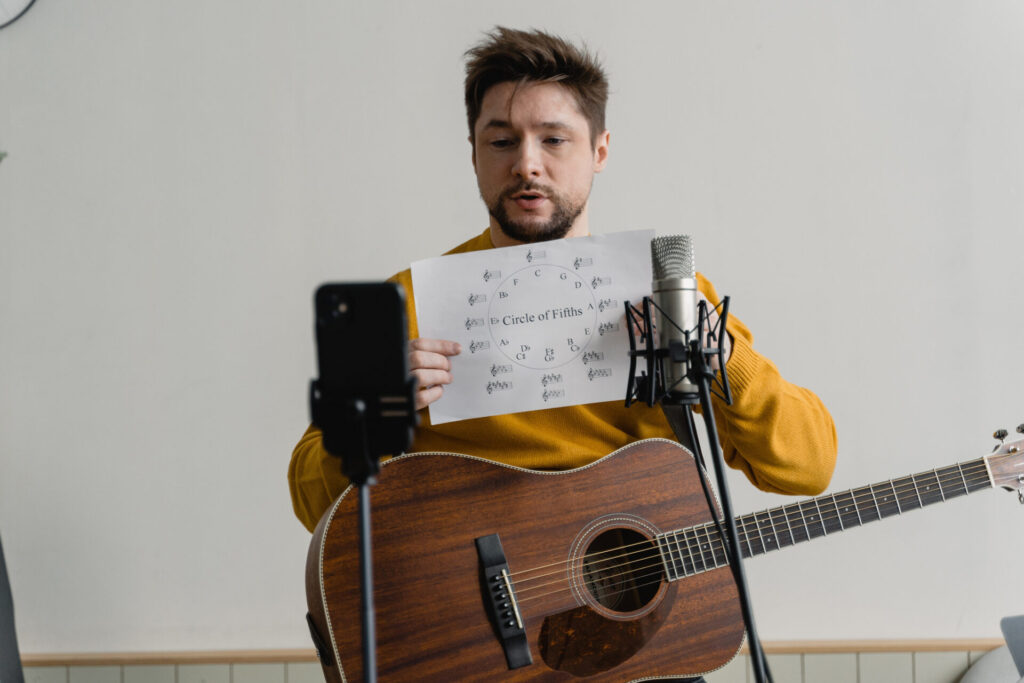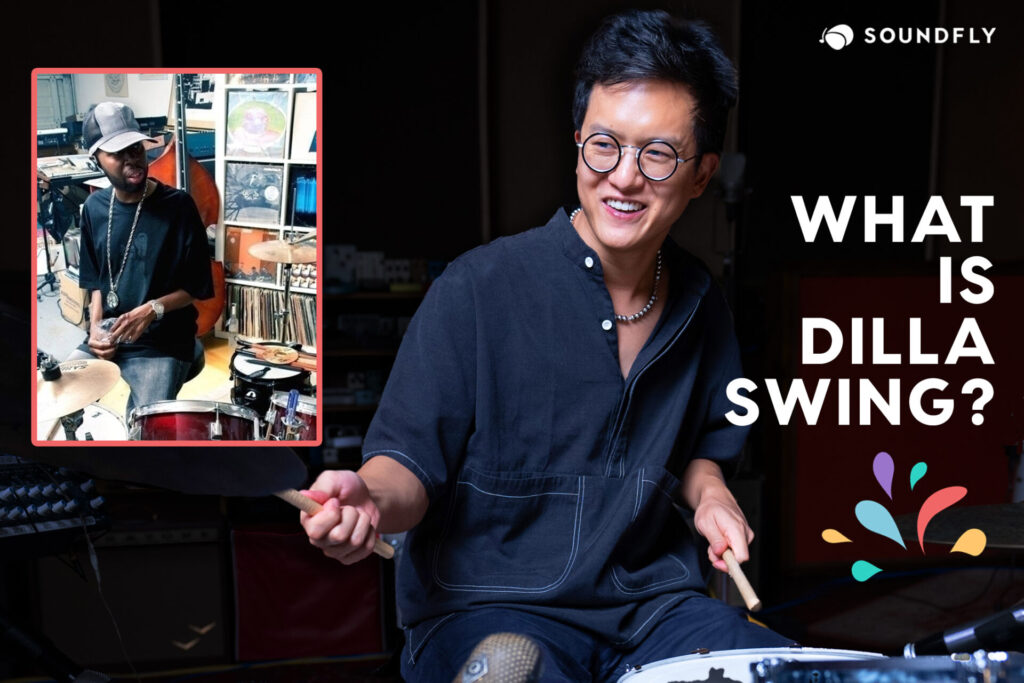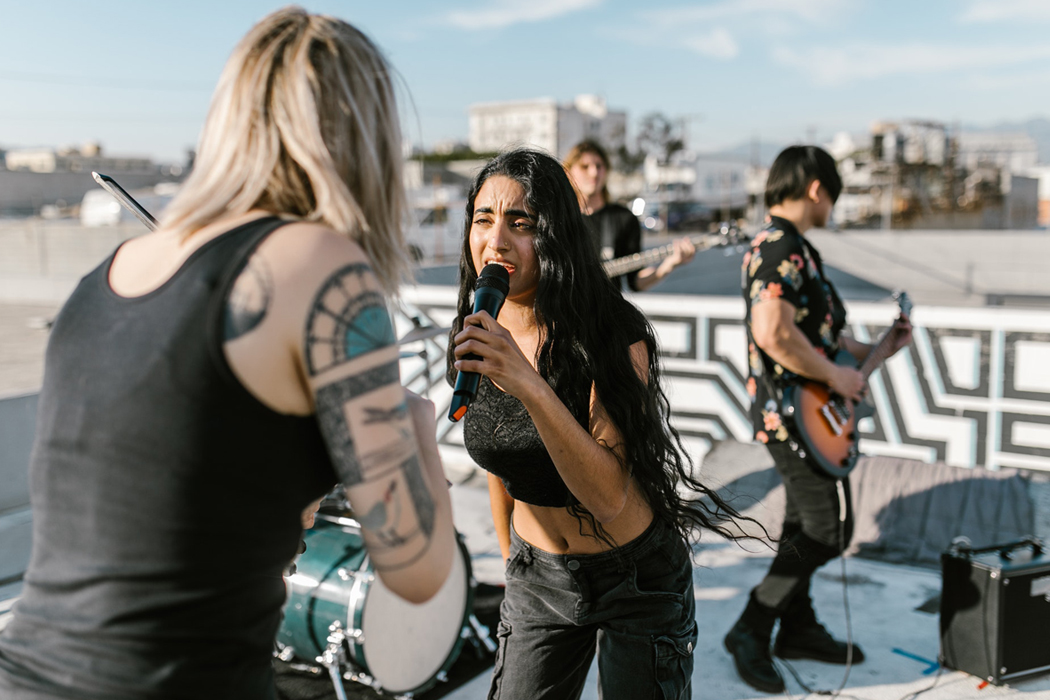
+ Recording and mixing your songs at home? Preview Soundfly’s suite of music production courses for free, and subscribe here to get unlimited access.
A great collaboration can open up new possibilities and lead to new musical ideas that you’ve never thought about before. It can also help strengthen your network in the music industry. Each musician has a special skill set, and when used right, we can combine the forces of individual musicians to create some great music!
The goal is to create the best, most open environment possible for everyone. We can always jam and casually exchange ideas as musicians, but a solid collaboration usually comes with a defined purpose, and can bring out the best in each person involved.
Collaboration should never be competition, but an effort to join forces in order to create something greater than your own. So, in this article I’d like to offer some ways to open yourself up to better collaborations.
1. Co-write songs.
Collaboration is a team effort that only can be learned as you keep doing it. If you’ve never done it before, sit down and co-write a song with a friend or a musician colleague. In this process, songwriters might offer up ideas, spend time chiseling them down individually or together, and then offer or receive feedback.
I find this process to be highly motivating, as you end up building confidence and trust in your process, as well as in your understanding of what works and what doesn’t in a songwriting capacity.
It is always an interesting experience to co-write a song with someone, and I can guarantee you that no two co-write experiences will be the same. This is because everyone has a different voice, and a different perspective. Consequently, every time you meet with someone to co-write, you will come up with a different song — perhaps even for the same subject!
+ Read more on Flypaper: “9 Music Collaboration Apps We’re Digging Right Now.”
2. Play on recordings by friends and colleagues.
There is something really great about being part of someone else’s song. I am personally primarily a composer, but I always love when friends or colleagues ask me to sit in and make a guest appearance on their recordings.
It gives you a chance to step back from your own responsibilities and service the songwriting voice of someone else. You can learn a lot about playing new styles of music, and find new approaches that you’d previously never considered or discovered. Essentially, you are using your voice and talent to amplify the message of another musician, and helping them realize their vision.
3. Offer and invite friends and colleagues to play on your songs.
You knew this was coming! Just like the above, it’s a wonderful experience to ask other musicians to play on your songs. Not only is it brilliant to watch your song come to life, but I can say that one of the most rewarding aspects of working with a good musician is to see how they take a part that you wrote, and turn it into something unique.
You may be protective of the specific ways in which you envision a song sounding, and that’s okay! Great collaborations are always built from a strong foundation of give and take; so be flexible on some aspects and rock solid on others. Just remember that if it makes the song better, you can open yourself up to the possibility to make some changes here and there.
+ Learn songwriting, theory, production, composition, arranging, mixing, and more — whenever you want and wherever you are. Subscribe for unlimited access!
4. If you want to collaborate with someone, just ask.
There’s nothing wrong with reaching out to someone you don’t know to ask if they’d be interested to collaborate with you — just be polite!
If you like the music that an artist makes, and if you think that their participation and input would benefit both your song and their career, go ahead and shoot them a message and see what happens. You can contact almost anyone through a social media network or by emailing them. Send them your track and see if they would like to play on it; the worst thing they can say is no, but if they say yes, then you could have one heck of a collaboration coming together.
Recently, I contacted a Grammy-winning musician without any prior acquaintance and I asked him to play on a track I was working on. I was honestly expecting to get a prompt no, but he actually responded saying “Sure, just send the track over!” We released the song and now it’s being listened to by thousands of listeners every week. Never in my life would I have imagined that I would work with this musician, but all it took was a simple email. The rest is history.
5. Technology makes distant collaborations possible.
Something that the pandemic has taught us musicians is that it is possible to co-write, record, and even perform songs remotely. Granted, it is not as organic as working with a musician in the same room, but remote sessions have made many exciting projects possible, and the technology available to you is just as exciting.
Before the COVID-19 pandemic, some musicians, including myself, had been distant to the idea of remote collaborations. But with the changing circumstances in the last 18 months, we’ve all had to adapt.
During this time, I recorded music remotely many times — even finished songs with musician colleagues living all around the world — and one thing I learned from this experience is that clear communication between collaborators can make or break remote projects. If you’re on the same page with your fellow musicians or producers, anything is possible! But likewise, poor communication between people can lead to misunderstandings and wasted working hours and effort.
One thing is for sure, in the post-pandemic music industry, remote collaboration is not going away anytime soon — distance is no longer an obstacle to overcome when you are writing or recording with others. So, go ahead and reach out to colleagues and friends you’d like to collaborate with and get to work!
+ Read more on Flypaper: “How I Developed a Collaborative and Creative Production Workflow in Lockdown.”
Final Thoughts
I think we all can take lessons from some of the great musical collaborations of the past, and apply them in our careers. I love being a solo artist, but there is something really cool about getting out of your comfort zone and collaborating with another musician from time to time.
The excitement of the new possibilities is such an inspiring aspect of creating music, and I highly recommend it to all musicians.
Continue learning with hundreds of lessons on songwriting, composing, home recording, electronic production, beat making, and much more. Explore Soundfly’s exciting courses like Modern Pop Vocal Production, Unlocking the Emotional Power of Chords, and Kimbra: Vocal Creativity, Arranging, and Production.
